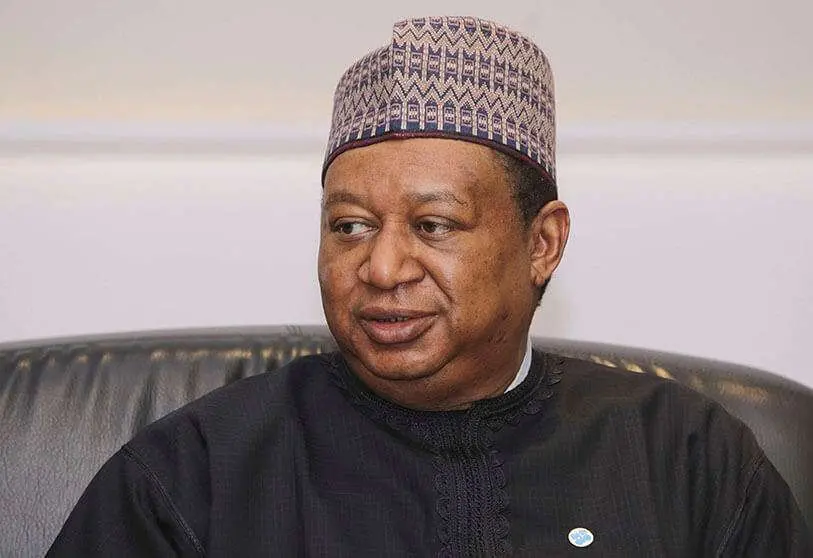Mohammed Sanusi Barkindo, OPEC's secretary general dies

The secretary general of the Organisation of Petroleum Exporting Countries (OPEC), Nigerian Mohammed Sanusi Barkindo, died on Tuesday in Abuja at the age of 63, after two terms at the head of the oil cartel. In a press release, the organisation's secretariat announced his death, without specifying the cause, describing it as "a profound loss for the entire OPEC family, the oil industry and the international community".
Born in Yola, a city in western Nigeria, the technician had held important positions in the Nigerian Oil Ministry and the Nigerian National Petroleum Corporation (NNPC), the country's main oil company, and represented the country at UN climate negotiations. Barkindo became Nigeria's delegate to OPEC in 1986, and since then has held a succession of positions in the organisation, until he was elected secretary general by consensus in 2016, repeating for a second term three years later.
OPEC is a Vienna-based oil cartel that brings together a number of countries from the Middle East, Africa and Latin America to set production quotas, and thus regulate the market in their favour. Barkindo's second term at the head of the group came to an end at the end of this month, and he could not aspire to a third term due to the limit established in the organisation's status.

A few hours before his death, Barkindo made his last public remarks at a Nigerian oil and gas conference in Abuja, where he thanked the country's president, Muhammadu Buhari, for giving him his confidence to serve as secretary-general, which he called "the honour of a lifetime".
Barkindo's tenure was not an easy one, having to deal with the fallout of the oil price crash a year before his ascension in 2015, as well as the total meltdown with the COVID-19 pandemic. In recent months, the African official has also had to weather the energy storm generated by the war in Ukraine and the reactivation of post-COVID economic activity, which has pushed up prices and strained the market, with an increase in demand and a reduction in supply, worsened by Western efforts to get rid of Russian crude.
Due to his upcoming retirement, OPEC had already chosen his successor, Kuwait's Haitham al-Ghais, whom Barkindo described as "a seasoned veteran of the oil industry and an astute diplomat who has been dedicated to OPEC for many years".

In his latest remarks, Barkindo also warned against the lack of investment in the sector and the multiple challenges he faced. "To put it bluntly, the oil and gas industry is under siege," he said. Taking stock of the current situation, Barkindo said that the war in Ukraine, the pandemic and inflation have formed a "perfect storm", causing "volatility and uncertainty in commodity markets and, more importantly, in the energy world".
Recently, OPEC+, which in addition to the member states of the Organisation also includes other important producing countries outside the group, such as Russia and Mexico, agreed to increase production by 648,000 barrels of crude oil per day, an increase in supply that, nevertheless, is still far from the quantities demanded by the market.

To alleviate this energy crisis, the African technician suggested the return of Iran and Venezuela to the international market, until now excluded by US economic sanctions, and lamented the paralysis of Libyan exports, whose industry has been halted by the internal divisions that plague the Arab country. "We cannot allow multilateral energy cooperation and global energy security to become collateral damage of geopolitics," Barkindo warned.








